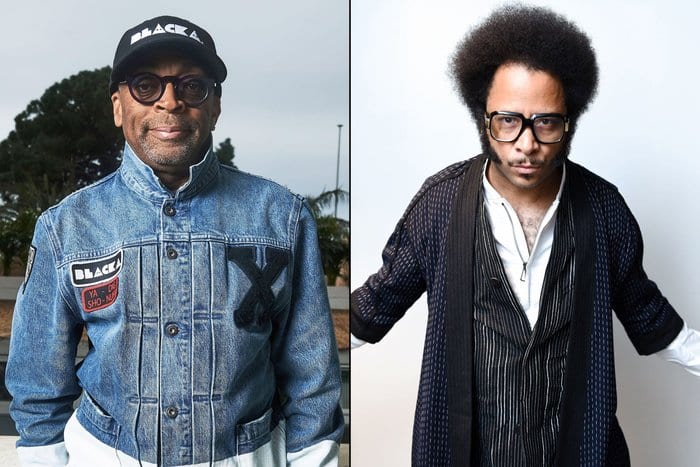by The Cowl Editor on September 13, 2018
Arts & Entertainment
by: William Burleigh ’19 A&E Staff
This summer, director Spike Lee released his newest film, BlacKkKlansman. Based on true events adapted from Ron Stallworth’s 2014 memoir Black Klansman, it had previously premiered at the 2018 Cannes Film Festival in May, where it won the Grand Prix award.
Set in the 1970s, BlacKkKlansman tells the story of Stallworth (John David Washington), the first African American detective in the Colorado Springs Police Department, as he sets out to infiltrate and expose the local chapter of the Ku Klux Klan. Stallworth accomplishes this by communicating with the leader of the KKK, David Duke (Topher Grace), over the phone and pretending to be white. The police then send a white officer (Adam Driver), posing as Stallworth, to insert himself into the chapter.
BlacKkKlansman received acclaim from critics, especially for its timely themes of race relations in America. It also performed well at the box office, with a current profit of $66.3 million (as of now), which is Spike Lee’s best since 2006.
But it has not gone without criticism. On Aug. 17, Boots Riley—another African American director—took to Twitter to voice his criticism of BlacKkKlansman with a three-page essay. Riley also released a film this summer.
In July, his absurdist dark comedy Sorry to Bother You received universal acclaim from critics, who praised Riley’s original, innovative script and direction. The film, set in Oakland, California, tells the story of a black telemarketer who puts on a “white voice” to become more successful in his career.
Interestingly, the plots of Sorry to Bother You and BlacKkKlansman revolve around a black character both pretending to be white over the telephone to achieve their goals. Riley has stated that this coincidence has nothing to do with his criticism of Lee’s film or the timing of their respective release dates.
Riley opened his essay by stating that it serves “not as much an aesthetic critique of the masterful craftwork of this film as it is a political critique of the content and timing of the film.” He also stated that he considers Lee to be a “huge influence” on his own career and a person whom he holds in the “highest respect as a filmmaker.”
Riley’s criticism voiced his disappointment with Lee’s portrayal of the Colorado Springs police in a positive light. He deems this portrayal harmful in light of the Black Lives Matter movement and the ongoing issue of police brutality towards the African American community.
Riley states that he takes issue with the fictional elements of BlacKkKlansman that he believes were “made up for the movie to make the police seem like heroes.” These plot points were “put in the movie to make Ron and the rest of the police look like they were interested in fighting racism, like they don’t all protect whatever racist and abusive cops are in there,” said Riley.
Riley reveals that the real Stallworth was actually a part of the FBI Counter Intelligence Program (Cointelpro) and “infiltrated a black radical organization for years (not for one event like the movie portrays)” to sabotage it while fighting against racist oppression.

Riley states that he doubts the validity of Stallworth’s memoir and believes that the events it depicts were embellished by Stallworth to “put himself in a different light.” He also points out that the memoir was “published by a publisher whom specializes in books written by cops.”
Riley summarizes his criticism of BlacKkKlansman towards the end of his essay: “[T]o the extent that people of color deal with actual physical attacks and terrorizing due to racism and racist doctrines—we deal with it mostly from the police on a day to day basis. And not just from white cops. From black cops too. So for Spike to come out with a movie where story points are fabricated in order to make a black cop and his counterparts look like allies in the fight against racism is really disappointing, to put it very mildly.”
On Aug. 24, Lee responded to Riley’s critiques in an interview with the UK publication The Times. When asked about Riley’s essay, Lee responded, “Look at my films: they’ve been very critical of the police, but on the other hand I’m never going to say all police are corrupt, that all police hate people of color. I’m not going to say that. I mean, we need police.” He would continue to acknowledge that, “Unfortunately, police in a lot of instances have not upheld the law; they have broken the law.”
Lee goes on to imply that he values the dialogue that Riley has contributed to about diversity of opinion in the African American community, “But I’d also like to say, sir, that black people are not a monolithic group. I have had black people say, ‘How can a bourgeois person like Spike Lee do Malcolm X?’”
Ultimately, while Lee and Riley disagree about the ways that they tell stories about the struggles of black men and women in America, their respective works BlacKkKlansman and Sorry to Bother You are both excellent, important films worth seeing.